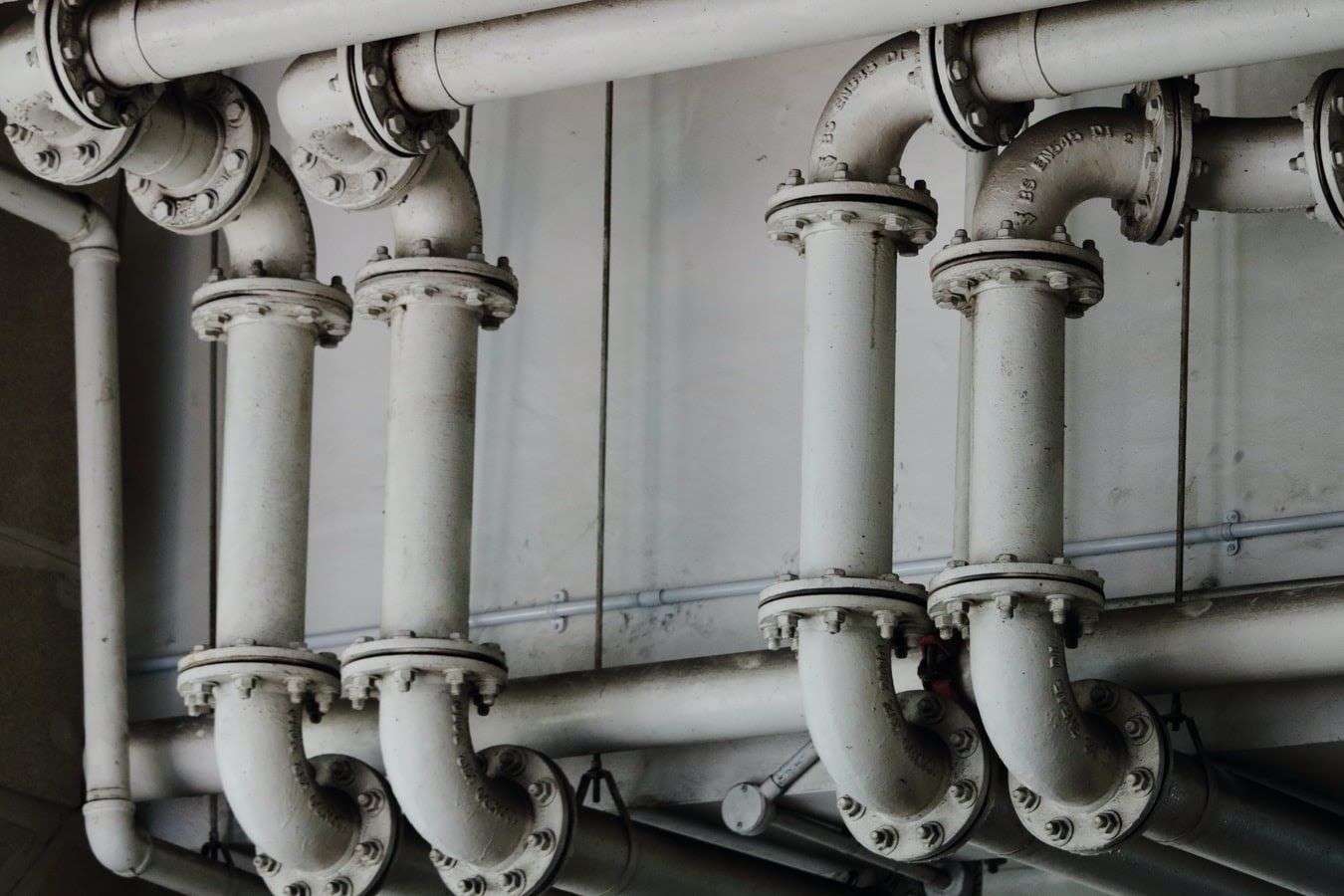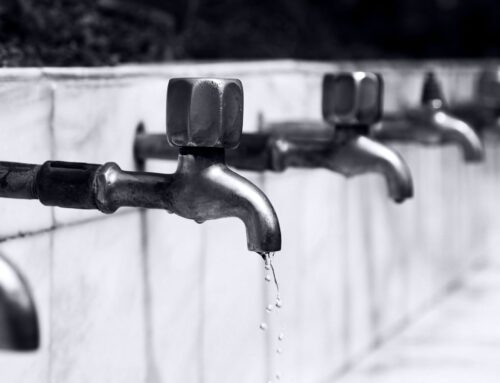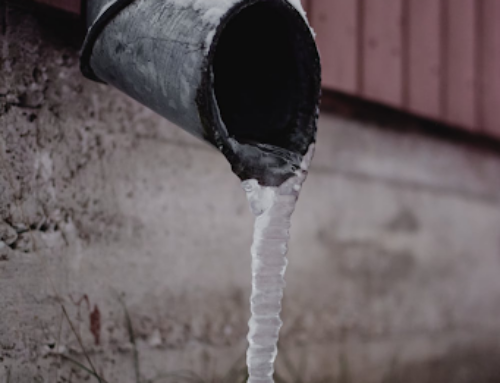Did you know that pipes start to freeze when temperatures drop below 20 degrees? Although Nashville winters aren’t known to be severely harsh, we do occasionally experience frigid nights at 20 degrees or below. When water freezes, it begins to expand and put pressure on your pipes, and when there is too much pressure, well, we all know what happens. To avoid a complete plumbing disaster this winter, follow our frozen pipe prevention tips to stay safe and prepared this season.
The 4 Best Ways to Keep Pipes from Freezing this Winter
1. Keep your water running to prevent frozen pipes.
There is no need to do this every evening, but letting your faucets drip on the coldest winter nights is an easy way to keep your pipes from freezing. Even a small trickle can keep water moving properly through your pipes.
2. Make sure your garage door stays closed.
By keeping your garage door closed, you can prevent any exposed pipes from freezing and keep the heat where it belongs, inside keeping you warm!
3. Keep your heat on if leaving for an extended period.
If you’re planning to leave home for a weekend trip, a conference, or any other experience this winter, make sure to leave your heat running. We recommend setting your thermostat to at least 55 degrees or higher while you’re away.
4. Have an extra power supply on hand.
If a winter storm hits and your power goes out, you can use an extra power source like a generator to stay safe and warm indoors. When your power goes out, there is a higher risk that your pipes can freeze, but a generator can help tremendously by supplying continuous heat and power to your home.
Will Frozen Pipes Thaw on Their Own?
We never, ever recommend letting frozen pipes thaw on their own. Instead, there are a few steps you can try to thaw frozen pipes and avoid spending thousands of dollars on pipe replacement and water damage. To thaw frozen pipes:
- Check your faucets: If you turn on your faucet and it only trickles, you most likely have frozen pipes. We recommend checking each faucet, because if you have one frozen pipe, others may be frozen as well.
- Let your faucets run: Turning on your faucets can accelerate the thawing process. Don’t be alarmed if your faucets leak water as your pipes thaw; this means that ice is beginning to melt.
- Apply heat to frozen pipes: You can safely apply heat to thaw frozen pipes by wrapping a heating pad or hot towels around your pipes. You can also place a space heater nearby. Never use a device with an open flame, such as a blowtorch or kerosene heater to thaw frozen pipes!
What to Do About Frozen Pipes
If you discover that your pipes are frozen, your first priority should be preventing them from bursting. Although the DIY methods above can be helpful, to ensure complete safety and prevent piping and water damage, we recommend hiring a certified Nashville plumber like Jack Ward & Sons Plumbing Company to assess your situation and provide professional recommendations.
Contact Our Local Plumbers for Frozen Pipe Prevention and Repair
At Jack Ward & Sons Plumbing Company, our Nashville plumbers are available 24/7 for emergency plumbing services. If you have a question about frozen pipes prevention or need to know what to do about the frozen pipes in your home, reach out to us as soon as possible. No time of day is too early or too late for our team!






Leave A Comment